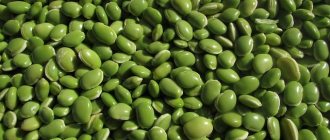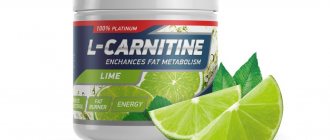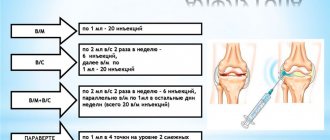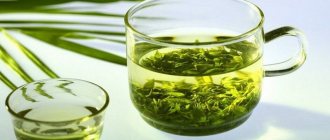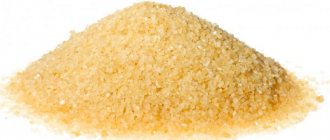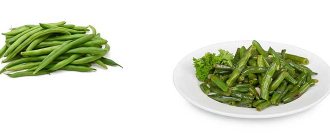Lecithin is a substance that is naturally present in brain cells. Taking dietary lecithin supplements helps improve concentration and stimulates intellectual activity. The word lecithin comes from ancient Greek and means “egg yolk.” In fact, this vital substance was first obtained from egg yolk in 1846. Scientists later discovered that it is also present in many plants and living organisms. Currently, most lecithin comes from soy, which contains up to 2% of this natural substance
Lecithin supplements
Lecithin supplements are one of the best-selling products, but some customers often ask about this interesting product.
Research has shown that lecithin has the ability to break down cholesterol into small particles that are easily processed by the system. With sufficient lecithin intake, cholesterol cannot accumulate on the walls of arteries and veins, maintaining ideal blood flow and preventing arterial blockage.
Lecithin is continuously produced in the liver (like cholesterol) and enters the intestines with bile, and is then absorbed into the blood. It helps transport fats, but also helps cells remove fats and cholesterol from the blood.
In addition, lecithin increases the production of bile acids from cholesterol, thereby reducing their amount in the blood. Therefore, cholesterol can only cause problems if there is not enough lecithin in the system.
Lecithin may support several other health conditions. Taking lecithin supplements or eating foods rich in lecithin can improve physical health, as well as help with joint arthritis, headaches, cardiovascular health, and even weight loss. Additionally, lecithin products may be useful in treating certain skin problems, including acne, eczema, and psoriasis.
Taking lecithin regularly may cause increased alertness in older adults. It may also help fight infection and boost immunity against pneumonia. When combined with vitamin E, lecithin helps reduce the need for insulin in diabetics. However, lecithin should not be taken by everyone; consult your doctor before purchasing supplements.
The effect of lecithin on weight loss
The substance is a complex of phospholipids that participate in all metabolic reactions in the body. It also contains beneficial tocopherols, biological pigments and esters. The combination of these active components accelerates the reactions of fat metabolism and ensures the breakdown of complex lipids.
A nutritionist-nutritionist answers why the body needs lecithin (video):
About Lecithin nutritionist nutritionist Zhiznevskaya Guzel
There are several directions of action of the additive:
- Emulsifying ability. The substance is necessary for separating large fat molecules into smaller ones, which are easily amenable to the action of catabolic enzymes.
- Increased thermogenesis. The body produces heat in increased quantities, muscle fibers begin to actively contract, which increases daily calorie consumption.
- Central action. Lecithin improves the absorption of fat-soluble vitamins and healthy cholesterol, increases the formation of active neurotransmitters. The synthesized substances have a beneficial effect on the central nervous system, normalize the regulation of hunger and satiety processes.
Phospholipids directly affect the formation and exchange of ATP, the main energy molecule in the body. A person on a diet who takes a dietary supplement with lecithin does not experience a loss of strength or weakness, since energy is generated through the destruction of adipose tissue. Nutrients also increase resistance to stress, which often causes overeating and weight gain.
Now Foods, Sunflower Lecithin, 1200 mg, 200 Softgels
★★★★★
905 rub.
More details
Features and Benefits
Lecithin has a number of beneficial properties for the body. Actually, it is deposited in the mucous membrane of the stomach and intestines directly during digestion, strengthening the mucosa. Thanks to it, the stomach and intestines are more protected.
One of its main properties is to protect the stomach from acids and drugs that can damage the gastric mucosa. In addition, lecithin also protects tissues and organs from harmful substances contained in the diet itself.
Additionally, it can prevent dangerous changes in cells and help repair already damaged cells.
Another property is to suppress the absorption of cholesterol. Consequently, it helps reduce fat and so-called “bad cholesterol”. The dietary supplement lecithin also has beneficial properties for treating embolism after an accident. Or it may improve broken bones.
Soy lecithin is one of those dietary supplements that has the support of the scientific community. Almost everyone agrees that it regulates cholesterol levels in the blood and reduces the risk of its deposits in the walls of arteries . It is obtained from the grains of this leguminous plant, which is widely cultivated in Europe and America. The procedure can be mechanical or chemical, the latter using an organic solvent called hexane.
Lecithin has other interesting properties as it is a major component of brain cells. It is associated with acetylcholine, a substance involved in intellectual performance that improves responsiveness and learning .
Lecithin in the food and non-food industry
Soybean and sunflower lecithins perform essential functions in food preparation and storage. They are essential emulsifiers and antioxidants. As an emulsifier, E322 is found in margarine, bakery products, dairy products, confectionery and chocolate products.
The additive is widely used in the preparation of emulsions for lubricating metal molds and sheets in bakeries. The substance is an excellent antioxidant in food products. To keep the chocolate fresh longer, an emulsifier is also added.
In cosmetology you can often find E322 because of its positive properties and beneficial effect on the skin.
Bakers and confectioners repeatedly say that lecithin is good and in demand because it increases the shelf life of various products. Its most important property is to prevent baked goods from sticking to baking pans.
The non-industrial sector also needs lecithin due to its functional properties. E322 is widely used to create dietary supplements. The active substance is used as a raw material for the production of solvents and paints. Lecithin is used to feed animals and fertilize plants. It is very popular in medicine and cosmetology. It is even used to make explosives and ink.
Composition of soy lecithin
Chemically, it consists of a phospholipid complex, among which phosphatidylcholine stands out. Said phospholipid represents a variety of enzymes and other substances having biological value. It supplies nutrients from which our body can synthesize acetylcholine, which is necessary for the transmission of nerve impulses.
Some of its most valuable components are B vitamins, such as choline and inositol, vitamin E and phosphorus. All of them are well-known elements due to their beneficial effects on the body. In short, they improve your blood lipid profile, helping to prevent a disease known as fatty liver. In fact, this problem is directly related to the risk of cardiovascular disease. When it comes to inositol, which belongs to the B vitamin group, it is extremely important for skin cell regeneration and hair follicle protection. On the other hand, vitamin E counteracts the harmful effects of free radicals on all cell membranes. These elements are a direct result of time and certain chemical aggressions.
Why are phospholipids needed?
Cholesterol
Cholesterol levels greater than 200 mg/dL can lead to arteriosclerosis and coronary disease. This is a serious public health problem, as more than half of people aged 35 to 64 in Spain are above this level . This is why it is recommended to introduce phospholipids, which will keep cholesterol in suspension in the blood, avoiding its deposits on the walls of the arteries .
Therefore, we can say that they help prevent cholesterol-related cardiovascular pathologies. For example, myocardial infarction, ictus or thromboembolism. In addition, it may reduce plasma levels of homocysteine, an amino acid that has been shown to reduce the risk of cardiovascular disease. For example, myocardial infarction to such an extent that it can be used as a cardiac marker.
Brain
The brain is another organ that benefits from phospholipids. . This is due to the fact that the breakdown of lecithin releases choline, the main neurotransmitter of synapses. Therefore, it plays an important role in electrical impulses. In fact, some scientists believe it could prevent some disorders such as Alzheimer's disease or attention deficit hyperactivity disorder. However, we should take this with a grain of salt as the European Food Safety Authority has said it cannot be proven. Until now, it has not been possible to show a cause-and-effect relationship between lecithin and its ability to regulate cholesterol. So it can be said that it may help prevent but has no therapeutic effect against cholesterol. So, if we are diagnosed with hypercholesterolemia, treatment will be prescribed by the doctor.
Kidneys
supplementation may prevent the formation of kidney stones . Especially when the bile is saturated with cholesterol. It is also an effective liver cleanser and plays an important role in cirrhosis or steatosis of the liver.
Endocrine glands
It is also known for promoting the proper functioning of the endocrine glands , especially the thyroid gland. In addition to the synthesis of prostaglandins , substances that support the immune system. In fact, they inhibit platelet aggregation, causing brochodilation and stimulating the endocrine glands.
Sports results
When we exercise, plasma choline levels decrease significantly. Thus, we might consider taking it before long, intense efforts to support the effects of acetylcholine on muscle fibers. Therefore, it would improve our productivity.
Contraindications and side effects
The instructions for use of lecithin indicate that it should be used with caution for urolithiasis, since phospholipids activate the process of bile secretion, and this can provoke the movement of stones and blockage of the bile ducts. It is not advisable to take lecithin-containing dietary supplements during pregnancy and breastfeeding.
If an allergic reaction occurs when using soy lecithin for weight loss, then use should be stopped or replaced with a similar product made from sunflower seeds.
Dietary supplements with phospholipids rarely have side effects. If the recommended dosage is significantly exceeded, diarrhea, dizziness, increased salivation, nausea, and vomiting may occur.
Soy lecithin is recommended for:
- Relieving and treating liver problems such as fatty liver, cirrhosis or hepatitis.
- Treatment of anorexia
- Prevention and treatment of inflammatory diseases of the digestive tract, gluten intolerance and Crohn's disease.
- Protecting our body from atherosclerosis.
- Reducing high cholesterol.
- Elimination of lipid metabolism disorders.
- Preventing kidney stones.
- Reducing feelings of weakness and fatigue.
- Increased physical and mental performance.
- Helps you lose weight and reduce fat percentage
- Decreased bile production.
- How to Avoid Damage Caused by Drugs and Drugs
- Treatment of constipation.
- Completing the Athletes' Diet
- Support for those living with Alzheimer's disease
- Help for those who are overweight or obese
Dose of soy lecithin
Its effectiveness will depend on the phospholipid complex, which should be between 98% and 99% phosphatidylcholine . Take in moderation, 1-2 spoons before lunch . In fact, one teaspoon contains 34 kilocalories of polyunsaturated omega-3 fatty acids, mainly linoleic and linolenic acids. 100 grams of soy lecithin contains 53 grams of fat, of which 35 grams are polyunsaturated and only 13 grams are saturated. The remaining 13 grams correspond to monounsaturated components such as oleic acid. Moreover, it is virtually non-toxic, as people have reported only mild cases of diarrhea, vomiting, and profuse sweating when taking high doses.
How to use
Lecithin is produced as an independent drug, and is also included in vitamin complexes or food supplements: powders, tablets, capsules, liquids.
The daily requirement of an adult for lecithin is 5-7 g. With a full diet, about 4 g enters the body per day, and a small amount is produced by the liver. Therefore, the additional daily portion of lecithin required to fully satisfy the body with it is small.
When using a liquid drug, the initial dose is ¼ teaspoon 2-3 times a day, then it is increased to 1 teaspoon. Lecithin capsules are taken 1 piece, 2-3 times a day with meals, powder - 1 teaspoon 3 times a day. The dosage for these vitamin-mineral complexes is indicated in the instructions for their use.
You can take such supplements in different ways: simply eat them with water or juice, add them to salads, cereals, and yoghurts. The duration of use is determined by the doctor; as a rule, dietary supplements with phospholipids are taken for a long time, from 1-2 months to a year. The visible effect is observed only after 2-3 weeks, but the achieved result lasts for several years.
Attention! Relying only on taking lecithin preparations, it will not be possible to adjust your weight downwards. In order to expend all the released energy, you need a low-calorie diet and at least minimal physical activity.
Who is especially useful for lecithin?
- Children, as it stimulates brain development and learning abilities.
- Teenagers are in a growth phase and are better able to cope with the stress of studying and exams.
- Adults because it enhances attention and responsiveness and provides many positive benefits to the body.
- Pregnant women
- For athletes , because it reduces muscle recovery time.
- In older people, because it stimulates brain function, protects arteries from hardening and reduces liver fat.


